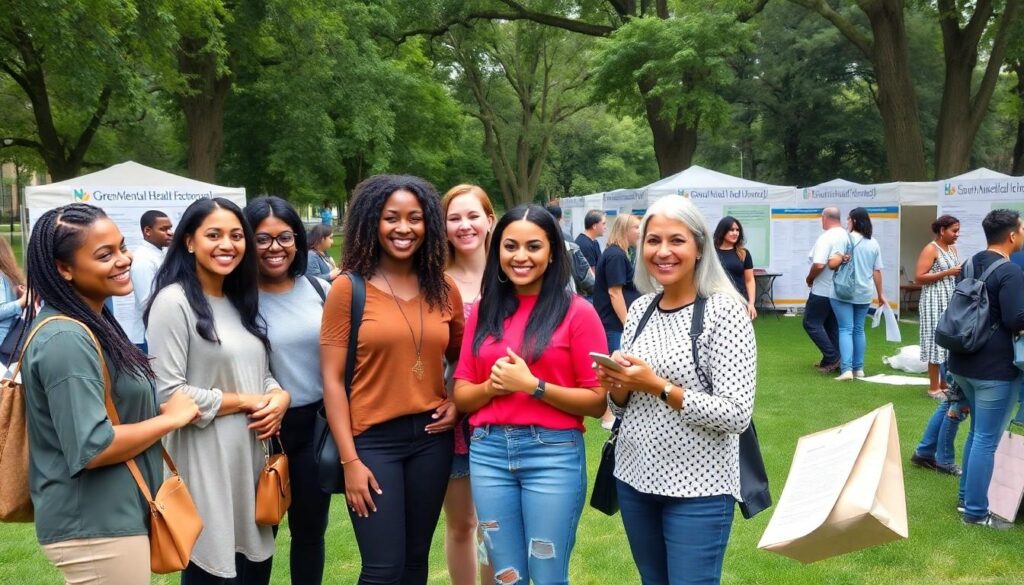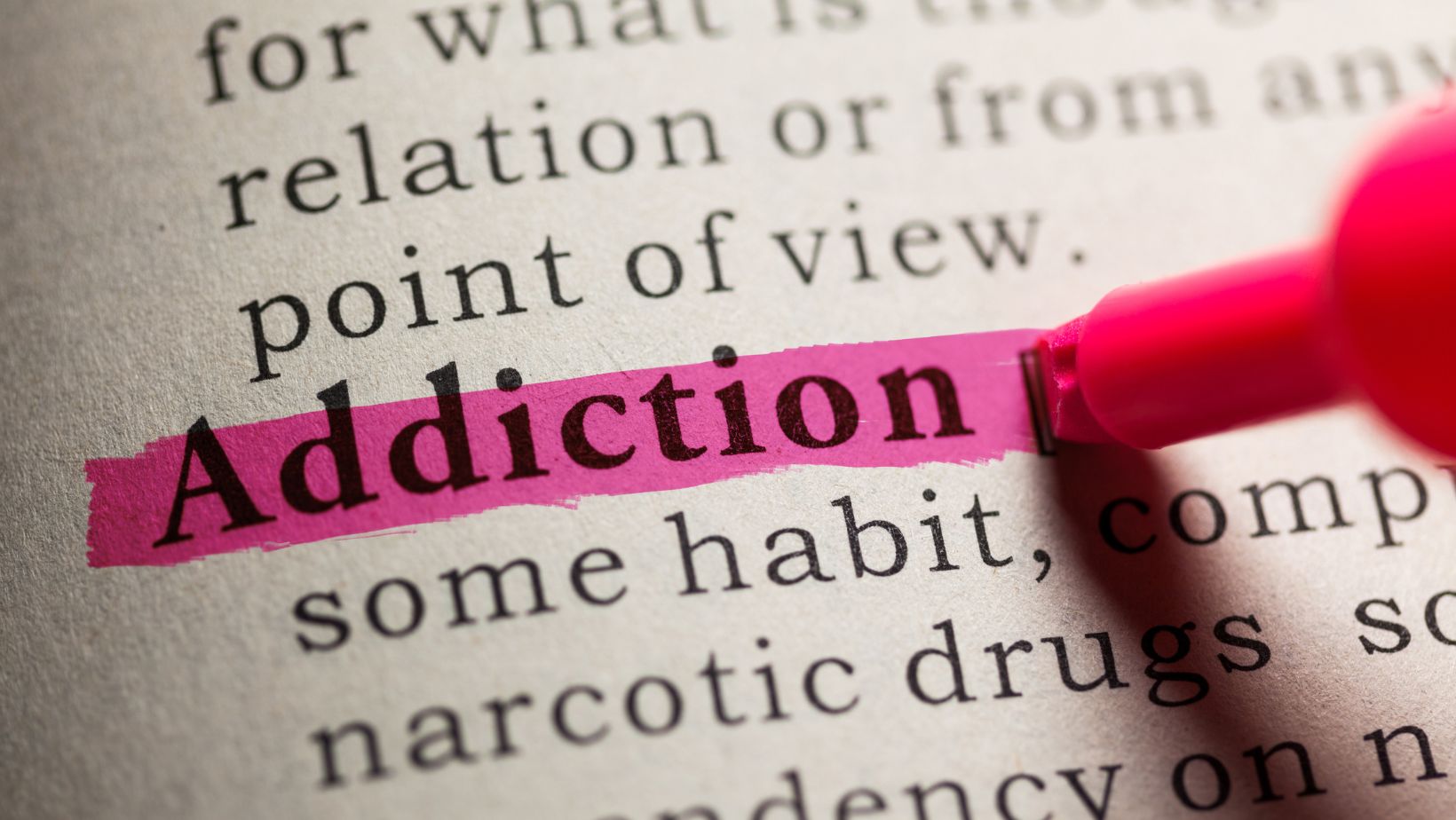In a world where stress often feels like a constant companion, mental health events are popping up like daisies in spring. These gatherings aren’t just about serious talks and somber faces; they’re vibrant celebrations of well-being, connection, and yes, even laughter. Picture this: a room full of people, sharing stories, learning coping strategies, and maybe even doing a little dance to shake off the blues.
These events offer a unique chance to break the stigma surrounding mental health while having a blast. Whether it’s workshops, panel discussions, or good old-fashioned mingling, there’s something for everyone. So why not take a step towards better mental health and join the fun? After all, who said self-care couldn’t come with a side of joy?
Table of Contents
ToggleOverview of Mental Health Events
Mental health events serve as vital platforms for promoting well-being while fostering community connections. These gatherings include a range of activities such as workshops, panel discussions, and interactive sessions. Participants engage in storytelling and share coping strategies, creating a supportive environment.
Celebrations of mental health take various forms, aiming to reduce stigma. By encouraging open dialogues, these events empower individuals to discuss their experiences. Performing arts play a role, with options like dance and music enhancing the overall atmosphere.
Workshops often cover important topics, such as stress management and mindfulness techniques. Attendees discover practical tools to improve their mental health, often taking these strategies beyond the event. Panel discussions frequently feature mental health professionals who provide insights and answer questions, clarifying common misconceptions.
Community involvement is essential for the success of these events. Local organizations often sponsor or support these initiatives, amplifying their reach. Inclusivity remains a priority, with many events designed to welcome individuals from diverse backgrounds and experiences.
Networking opportunities flourish at these gatherings, enabling participants to build lasting connections. Many leave equipped with not just knowledge but also new friendships. With a focus on joy and positivity, these events demonstrate that mental health can be a source of celebration rather than something to hide.
The overall impact of mental health events contributes to community resilience. They inspire ongoing dialogue and promote a culture of support and understanding. Engaging in these activities strengthens collective mental health, making a difference in participants’ lives.
Importance of Mental Health Events

Mental health events hold significant value in promoting well-being and community connection. They serve as platforms for important dialogue and education around mental health topics.
Raising Awareness
Raising awareness about mental health issues is a primary goal of these events. Participants learn about the signs and symptoms of various mental health conditions. Information dissemination occurs through engaging storytelling and targeted workshops. Creating environments where individuals share their experiences helps normalize conversations about mental health. Attendees gain insights from mental health professionals through informative panel discussions. Awareness campaigns run alongside activities, emphasizing that everyone plays a role in mental health advocacy.
Community Engagement
Community engagement thrives at mental health events, fostering strong connections among participants. Local organizations often partner with these initiatives to promote outreach and inclusivity. Diverse backgrounds are welcomed, creating a rich tapestry of shared experiences. Individuals can connect over common challenges, generate support networks, and find new friendships. Interactive activities encourage participants to collaborate, enhancing relationships and breaking down barriers. Engaging with others cultivates a sense of belonging, reinforcing that mental health is a shared journey deserving celebration and attention.
Types of Mental Health Events
Mental health events come in various forms, each designed to address well-being and foster community connections. Exploring these different types provides insight into how individuals can engage in mental health advocacy effectively.
Workshops and Seminars
Workshops focus on practical skills and coping strategies, offering participants hands-on experiences. Attendees engage in activities centered on stress management, mindfulness, and self-care techniques. Seminars typically feature experts who share insights into mental health topics, offering evidence-based information. Facilitators encourage open discussions, allowing participants to ask questions and share their experiences. These formats empower individuals to equip themselves with tools for better mental health, promoting Personal growth in comfortable settings. Overall, workshops and seminars emphasize learning and skill-building in an interactive environment.
Mental Health Fairs
Mental health fairs serve as engaging platforms, bringing together various resources and community organizations. Participants explore booths that provide information about services, support groups, and educational materials. Events often include activities like art therapy, wellness demonstrations, and interactive games to promote mental health awareness. Local organizations collaborate to enhance the experience, ensuring diverse offerings for attendees. Engaging speakers present topics in an accessible manner, making it easy for individuals to understand complex issues. Mental health fairs foster an inclusive atmosphere where participants connect and share their stories, reinforcing community bonds.
Key Organizations Involved
Numerous organizations play vital roles in promoting mental health through various events. Their collaborative efforts foster community awareness and connection.
Nonprofit Organizations
Nonprofit organizations significantly contribute to the landscape of mental health events. Groups like Mental Health America and the National Alliance on Mental Illness host awareness campaigns, workshops, and community gatherings. They provide essential resources and support systems to individuals and families facing mental health challenges. Additionally, organizations often collaborate with local stakeholders to reach underrepresented populations. Mental health advocacy becomes more effective through these partnerships, strengthening community ties. Participation in events organized by these nonprofits empowers individuals and cultivates a supportive atmosphere for open discussions.
Government Initiatives
Government initiatives enhance the visibility and impact of mental health events across communities. Programs funded by local and federal agencies often aim to destigmatize mental health issues. These initiatives facilitate workshops and seminars that educate the public on mental health care access. Additionally, campaigns promote mental wellness by sharing resources and information about available services. Local health departments sometimes organize fairs that connect residents with vital support networks. Collaborative efforts between government bodies and community organizations increase reach and inclusivity.
Impact of Mental Health Events
Mental health events significantly enhance well-being and connection among participants. These gatherings cultivate a supportive environment that nurtures understanding and growth.
Benefits to Participants
Participants gain practical skills and valuable insights during mental health events. Workshops provide hands-on experience in stress management and mindfulness, promoting healthier coping strategies. They also foster community connections as individuals share stories and experiences. Engaging in open dialogues helps reduce stigma and encourages participants to speak openly about mental health challenges. Attendees often leave feeling empowered, equipped with tools to navigate their mental health journeys and inspired by the collective spirit of support.
Long-Term Effects on Communities
Community resilience strengthens over time with the impact of mental health events. Individuals develop networks that offer ongoing support, fostering relationships built around shared experiences. Local organizations gain greater visibility when partnering with mental health initiatives, increasing outreach to underserved populations. These collaborations promote inclusivity as diverse groups come together to engage in meaningful conversations. Awareness of mental health issues rises, encouraging proactive community involvement. Ultimately, these events lay the groundwork for sustained dialogues about mental well-being, cultivating a culture of understanding and support.
Mental health events are transforming the way communities engage with mental well-being. By providing a platform for open dialogue and shared experiences, these gatherings break down barriers and foster connections. Participants leave equipped with practical tools and a renewed sense of support from their peers.
As awareness grows and stigma diminishes, the joy of self-care and mental health advocacy becomes more accessible. The collaborative efforts of organizations and individuals create an inclusive environment where everyone feels welcome. Embracing these events can lead to lasting change and a stronger sense of community resilience. Ultimately, mental health is not just a topic of discussion but a celebration of shared humanity and support.




